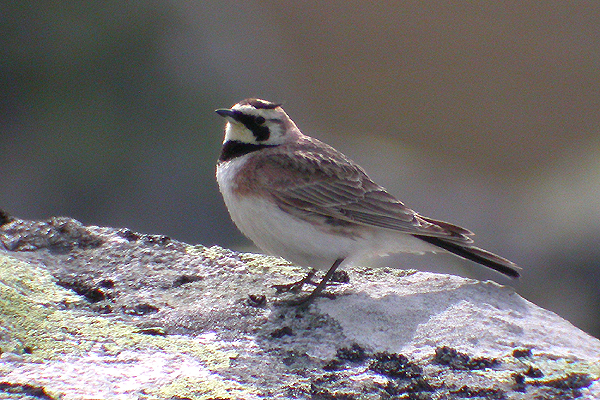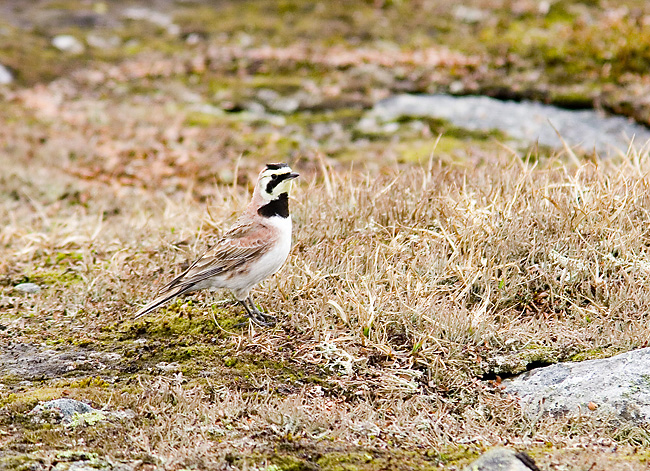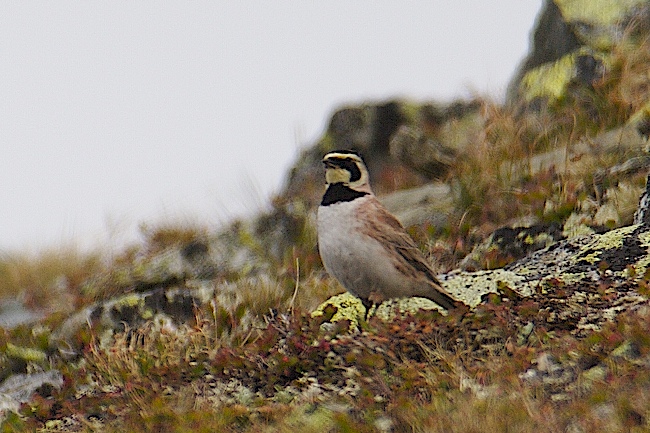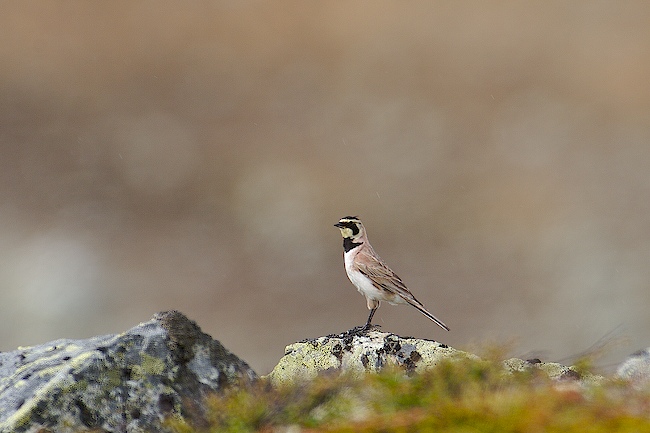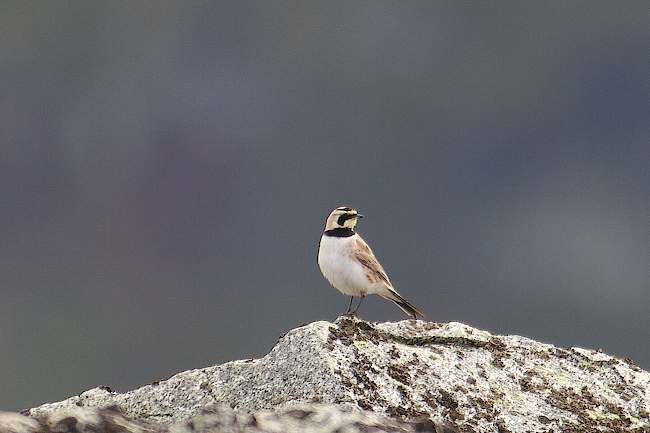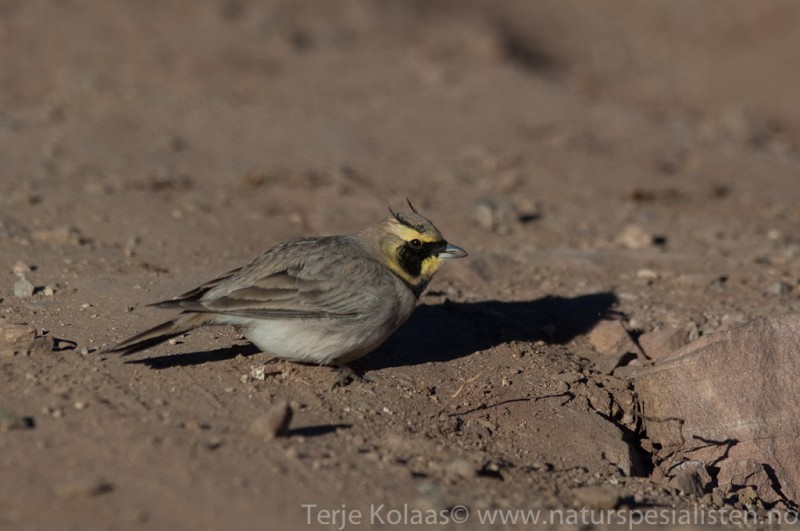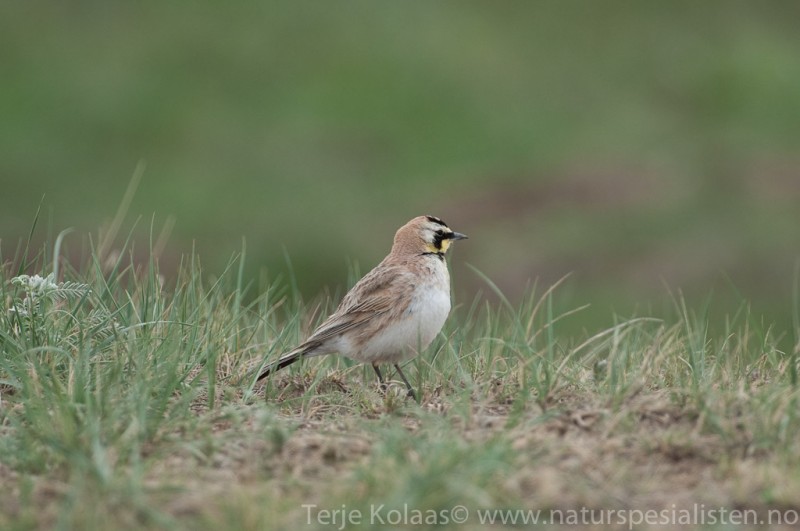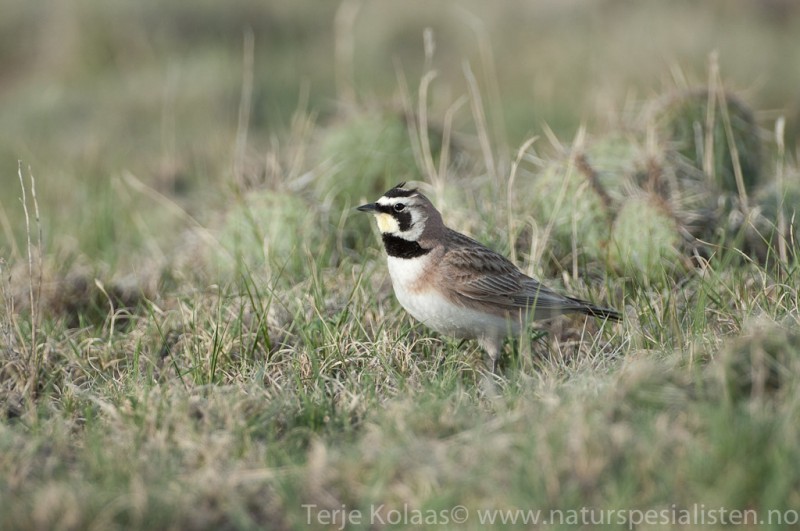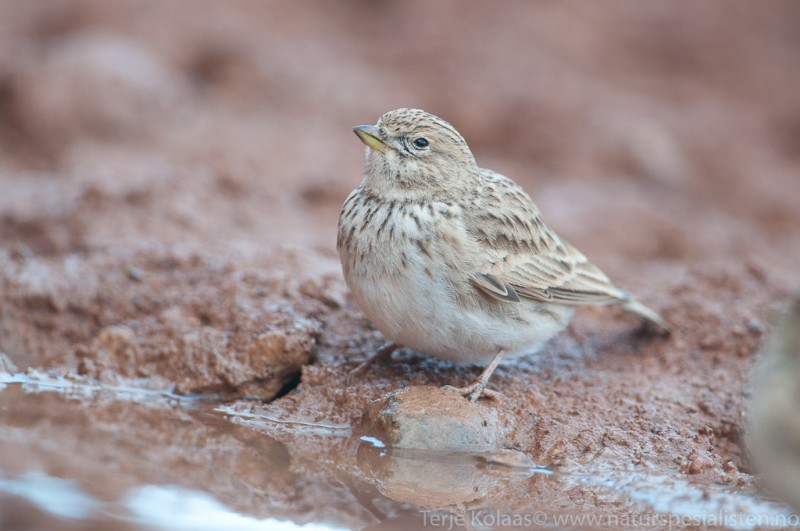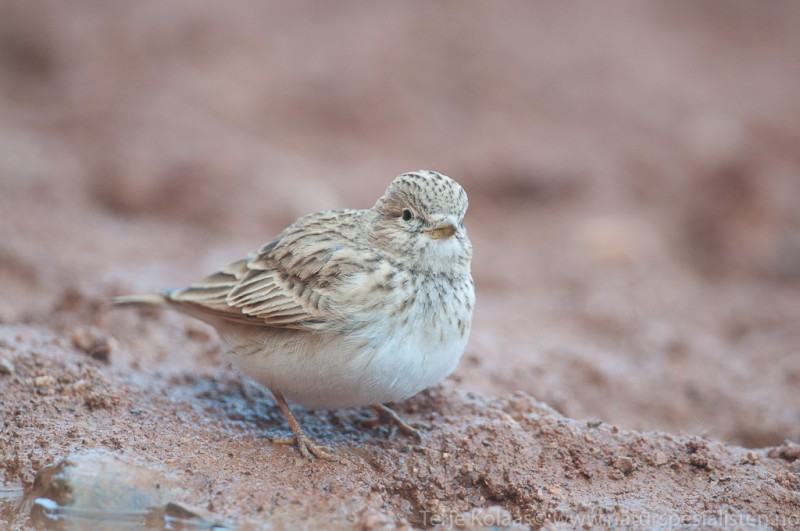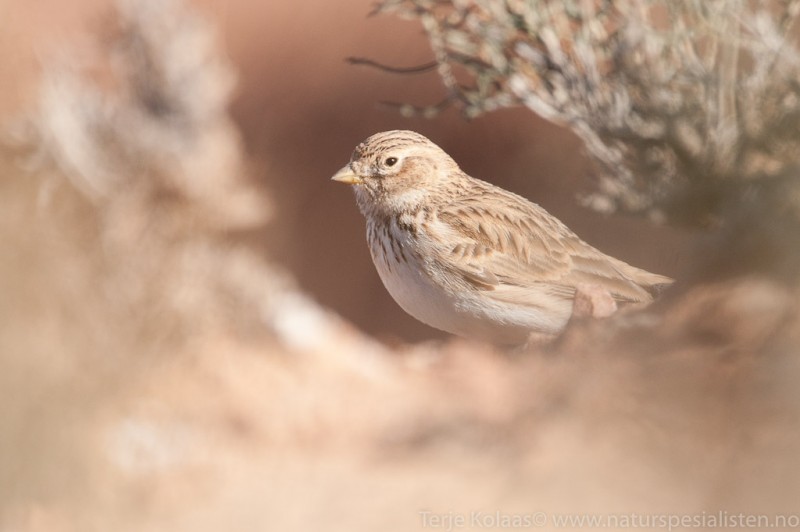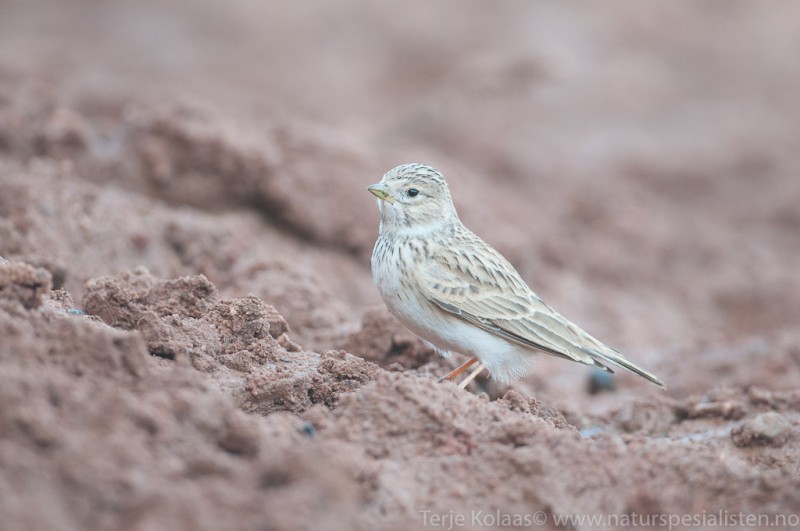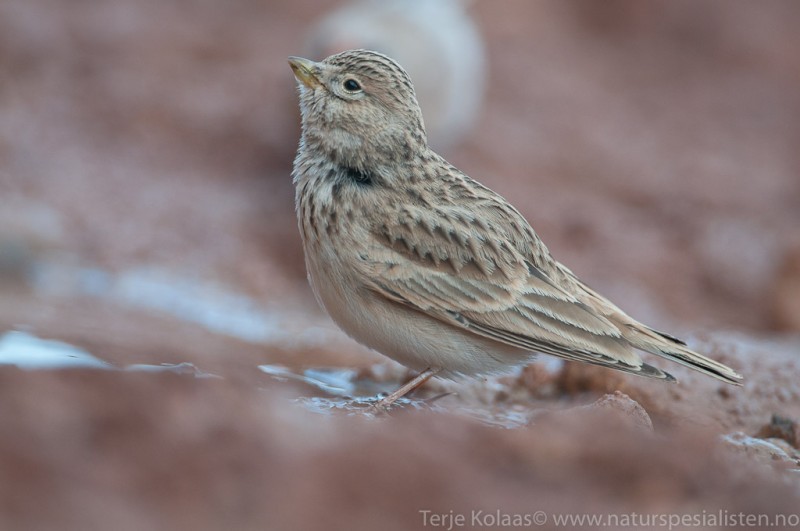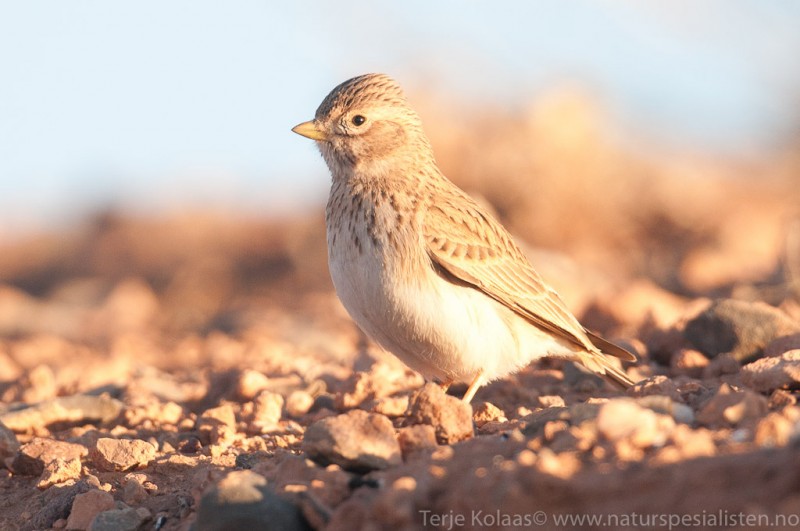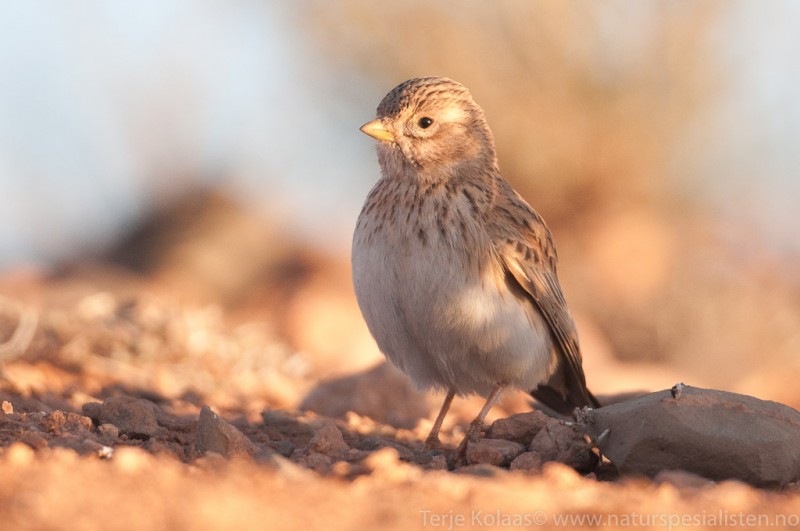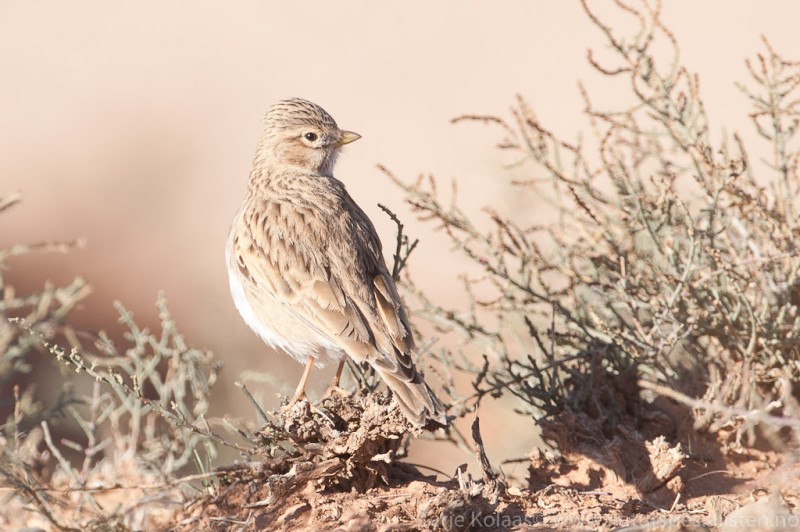Horned Lark (Eremophila alpestris)
Mediterranean Short-toed Lark (Alaudala rufescens)
Breeding plumage: Yellow face with broad black moustache stripes and black lores. Black forecrown and thin black horns. Black breast band with blunt vertical extension towards throat (sometimes connects to moustache stripes). Black tail with white sides. Juveniles covered in small pale spots with only faint facial markings. May be confused with juvenile Skylark, but note shorter bill and yellowish face of young Shore larks.
Sound:Song a stream of thin and tinkling, squeaking notes with a recurring, drawn, ringing and slightly ascending chirp. Timbre resemblant to Lapland Bunting. Often given from high in the air, being difficult to locate. More hesitantly when given from the ground with a stumbling introduction. Flight call quite similar to Meadow Pipit's "tseep" call, but less anxious.
Song:
Distribution:
Wikipedia: map (se also Xeno-canto below)
Ecology:Birdlife ecology
Links:
Observation.org Latest observations
Image search Flickr NB! May give other species
CCSmall lark with short, blunt bill and markedly streaked breast. The long primary projection is not covered by the tertials, as in (Greater) Short-toed Lark. Upperparts browner, and the dark shoulder patch og GSL is missing. Supercilium reaches all the way to bill-base. Wing-markings diffuse. Flight and behaviour similar to GSL. Sometimes performs song flight in characteristic "slow motion".
Sound:Contact call most diagnostic. A drawn, rattling "prrrrrrrt". Longer than in GSL, and less defined. Last syllable (t) accented and with a lower pitch. Song more continuous than in GSL, with a jerky rhythm and lots of mimicry. Listen for the interweaved contact calls.
Contact call, song:
Distribution:
Xeno-canto: map
Ecology:Birdlife ecology
Links:
Observation.org Latest observations
Image search Flickr NB! May give other species
CC
 English
English Albanian
Albanian
 Armenian
Armenian
 Bulgarian
Bulgarian
 Catalan
Catalan
 Croatian
Croatian
 Czech
Czech
 Danish
Danish
 Dutch
Dutch
 Finnish
Finnish
 French
French
 Georgian
Georgian
 German
German
 Greek
Greek
 Hungarian
Hungarian
 Italian
Italian
 Latvian
Latvian
 Lithuanian
Lithuanian
 Macedonian
Macedonian
 Norwegian
Norwegian
 Polish
Polish
 Portuguese
Portuguese
 Romanian
Romanian
 Russian
Russian
 Sami : Lule sami
Sami : Lule sami
 Sami : North sami
Sami : North sami
 Sami : South sami
Sami : South sami
 Scientific names
Scientific names
 Serbian
Serbian
 Spanish
Spanish
 Swedish
Swedish
 Ukrainian
Ukrainian

